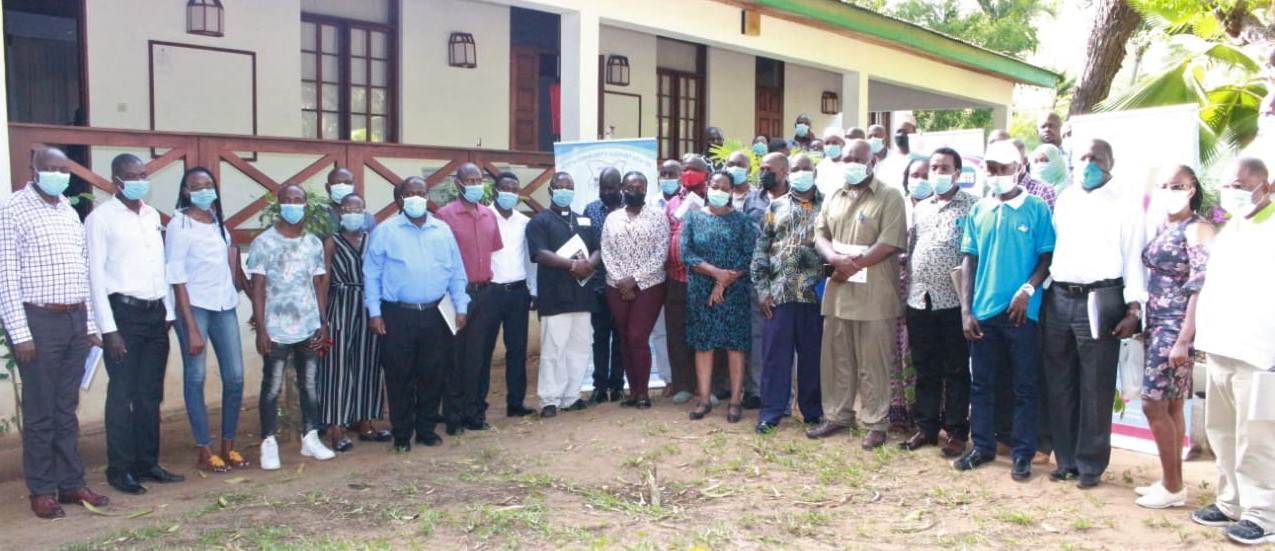As part of our efforts towards Peace Building, Conflict Transformation And Preventing/Countering Violent Extremism which is majorly funded by the Royal Danish Embassy, we were honoured to participate in the Re-modelling of the Kilfi Preventing and Countering Violent Extremism County Action Plan as organised by the Kenya Community Support Centre.
Kilifi County is rated 39/47 poorest counties with a rate of poverty (adult equivalent poverty head count) is 70.8% higher than the national rate of 45.9%. Insecurity, Exclusion, terrorism and violation of human rights by the state and non-state actors remain the greatest developmental challenges in the County. This high rate of poverty is a major driver of conflicts and recruitment into terrorist groups. Kilifi has a huge youth population which has in the past been politically manipulated to perpetrate violence including intra and inter group violence. Women and girls in county continue to bear the brunt of violence including gender based violence, early pregnancies, high school dropout and cultural practices that deny women opportunities to participate in peace building, security and influencing achievement of sustainable development goals. The County also has a rich natural resource economic potential; Kilifi has the longest coastline potent for the Blue Economy, long rivers and green hinterland, however the County has been prone to natural disasters such as drought and perennial floods hindering its growth potential.
The county has experienced perennial resource based conflicts including Droughts in Ganze and Magarini, such drought have also been a cause for human wildlife conflicts especially between farmers and stray animals from National parks in search of water and pasture. Floods near major river basins have also affected humans leading to displacements in the County. Conflicts in the extractives industry such as from the Salt (In Magarini) and Cement (Kaloleni) and Quarries (in Kauma) have been tainted for human rights violation and depletion/pollution of the environment. The land question on use and ownership has overtime been invoked to radicalize youth political and instigate ethnic profiling and violence during the elections. The County has been associated with cessionist groups such as the Mombasa Republican Council and other splinter groups which are always revived during electoral periods. Such groups have been associated with previous incidents of election violence in the County such as in 2013 and 2017 general elections. Kilifi being a major opposition strongholds over several election cycles has been epitomized by high level of mistrust between communities and state agencies where the former views the later as an occupational force that legitimizes historical marginalization and human rights violations.
Kilifi County was one of the first Counties to develop the County Action Plan for Preventing and Countering Violent Extremism. (CAP). Being the First Generation CAP, the Kilifi County Action Plan (KCAP) was formulated in line with the former National Strategy (NSCVE) Adopting the Strategic Objectives Model. The NSCVE has since ben refreshed adopting the Objective Key Results Framework (OKR) that is backed up with the FUSION Monitoring and Evaluation System by the National Counter Terrorism Centre (NCTC). This refreshment of the National Counter Terrorism Strategy necessitates for the Kilifi County Action Plan for Preventing and Countering Violent Extremism to be remodelled to fit in to the National Framework. Implementation of the KCAP has also stalled due to insufficient resources by PCVE actors in the County and poor coordination amongst actors.
The Plan shall be implemented by Kenya Community Support Centre in Partnership with The National Counter Terrorism Centre, the National Government Administration Officers under the leadership of the County Commissioner Kilifi, The County Government of Kilifi and Local CSO actors working in Kilifi.























